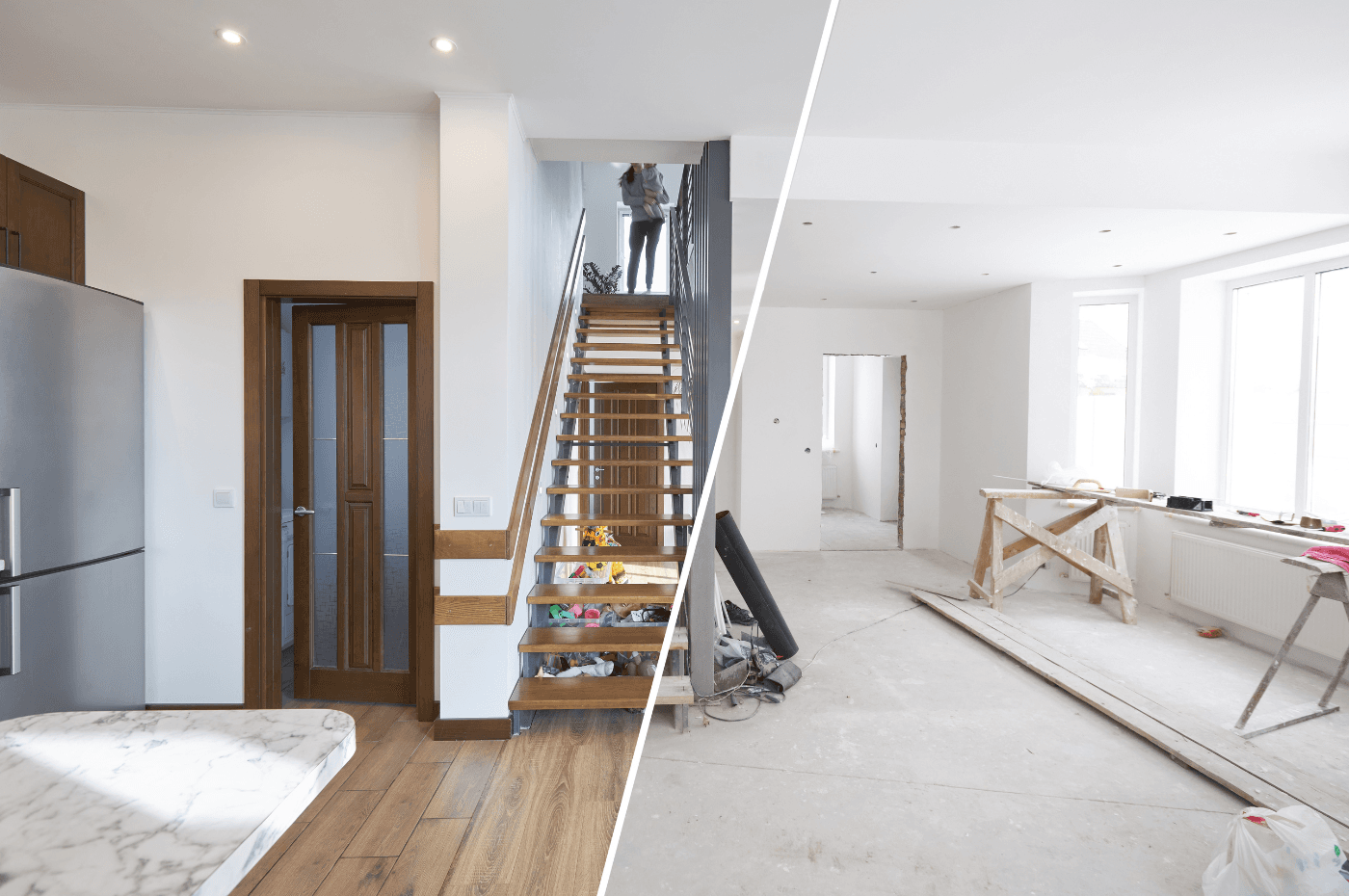Renovation programs abound on television. If you happen to watch any of them, chances are you've heard about or seen the creation of a "real estate flip".
Often presented as a lucrative activity, the property flip trend has gained a lot of momentum with the multiplication of shows featuring it. But while they generally portray it as an easy success, accessible to all, success is far more complex than they let on.
Before even considering a property flip, it's important to have all the necessary information at hand to know if this type of project is appropriate for our situation and if it could be a good investment depending on the circumstances.
How do I flip a property?
To describe the process in a few words, real estate flipping involves purchasing a property below market value at a reduced price, then renovating and reselling it as quickly as possible with the goal of making a profit.
It's an investment strategy that particularly affects single-family homes but can be applied to several different types of properties.

A strategy for savvy investors
In an ideal world, a flip would allow you to make a healthy profit margin with little cost and time. But it's not that simple. This type of project requires a significant investment of time and money, as well as a great deal of rigour on the part of the owner.
In fact, many people who are tempted by the exercise are not careful enough: they underestimate the cost and duration of the work while overestimating the resale price. As a result, their plan, which they thought would be profitable at the outset, turns out to be much less profitable than they had hoped.
Beware of the anti-flip tax in Canada
If you're looking to flip a property, the federal government has recently tightened the rules on this type of scheme in an effort to curb real estate speculation.
The anti-flip tax states that any profit made on the sale of a property less than 12 months after its purchase is considered a business profit. Therefore, the amount earned will be taxed at 100%, which could hurt your pocketbook.
How much should I pay for a house flip?
The key to a successful flip is to make sure you don't overpay for the property you're flipping. This means taking the time to find the best opportunity and not jumping at the first bargain that comes along.
Depending on the renovations that need to be done, you may be able to buy the property at a lower or higher discount. If the work to be done is cosmetic, you may be able to buy a home for 25% off the market price.
However, if the property requires major work, you should opt for a purchase price that targets a 35% discount if you hope to make the most of your investment.

How do you calculate the profit on a flip?
To calculate the approximate profit that a flip could generate, it's not enough to just consider the cost of buying and reselling the home. You must also consider the costs of renovations, acquisition, ownership, and resale.
The flip profit is the difference between the sale price and the total cost of the project. The profit can be calculated as follows:
Flip profit = sale price - total costs incurred
The costs incurred include:
- Purchase price;
- Acquisition costs;
- Renovation costs;
- Carrying costs;
- Resale costs.
Also note that the longer you hold the property, the higher the cost of the bill, due to interest on the mortgage, cost of insurance, and so on. That's why a flip project needs to be completed as quickly as possible if you want to make the most attractive profits.
How to finance a flip?
Completing a real estate flip requires adequate financing to purchase the property and make the desired improvements. There are many options available to you to obtain sufficient funds:
- Conventional financing: offered by traditional banks and financial institutions, this generally requires a personal contribution and guarantees. Some financial institutions may be reluctant to lend on this type of property.
- Private financing: although the interest rate is higher, using a private lender or business partner can be an attractive option for short-term projects.
- Equity financing: if you own other properties, they can be used as collateral or leverage to obtain financing.
Doing the work yourself: a good idea?
To avoid unnecessary expenses, you may want to put your do-it-yourself skills to good use and do some of the renovations yourself. But beware: depending on the circumstances and the changes you want to make, the law may not allow you to do the work yourself.
What the law says in Quebec
If you live in the property you want to "flip," you can make certain renovations, but there are certain limits.
Among other things, the Régie du bâtiment du Québec (RBQ) prohibits you from installing electrical, gas or oil systems. To do so, you must be licensed or hire a professional.
If you don't live in the house you're renovating, you can't do the work yourself. You'll need to get a license or hire a contractor.
You should also check with the municipality where the property is located to see if there are any restrictions.

5 tips for a successful real estate flip
1. Shop around for the best deal
As we mentioned in the previous paragraphs, you must take the time to look at the different options available to you, rather than just picking the first one that comes along. By shopping around, you'll be able to find the best deal for your project.
Note that it's very useful to know the real estate market to be sure to identify the most profitable deals for your flip. That's why it's better to look in a specific city or neighbourhood that you know well, rather than searching all over the place.
If your knowledge of the real estate market is limited, don't hesitate to hire a professional to help you with your research.
2. Find the right people
While playing multiple roles can save you money, don't try to do everything yourself just to save a few pennies. Bringing in real estate or construction professionals can make your job a lot easier and help you complete your project with fewer pitfalls.
For example, even before you buy a house, you can hire a real estate agent to help you find the perfect property. You could then hire a home inspector to help you focus on the major work that needs to be done on the property.
When renovating, it can also be advantageous to partner with various construction professionals (plumbers, electricians, architects, etc.). This partnership not only ensures that you'll get a job done right but also guarantees that you'll finish your project faster than if you went it alone.
3. Determine the right amount of remodelling to do
To maximize your profit margin, you must be able to determine the right amount of work to put into the property. If you invest too little in renovating the house, you could be forced to sell it for less than the asking price.
Similarly, if you put too much into the renovation, the amount of money you'll make will be reduced.

4. Plan for all possible scenarios
To get a clearer picture of your project, take the time to determine the different scenarios (optimistic, realistic, and pessimistic) that could occur. If you plan to make a profit even in a pessimistic scenario, you'll have greater confidence in the success of your project.
By identifying different possible outcomes, you'll be able to anticipate every aspect of your project and avoid disappointment when things don't turn out as well as you hoped. It's important to leave yourself some wiggle room to deal with any unforeseen circumstances that may arise.
5. Have a good resale strategy
If it's important to have a plan when you buy a flip, it's also imperative to have a strategy for successfully selling your property quickly and at a better price. Several methods can help you increase the visibility of your home and attract potential buyers:
- Home staging helps you show off your newly renovated property;
- Social media and web advertising can be used to maximize your home's visibility;
- Virtual tours allow more potential buyers to view your home without taking up more of your time.
Looking to buy a property?
XpertSource.com can help you find a real estate broker. When you tell us about your project, we put you in touch with qualified resources for free. Simply fill out our form (it only takes a few minutes) and we will connect you with professionals.

